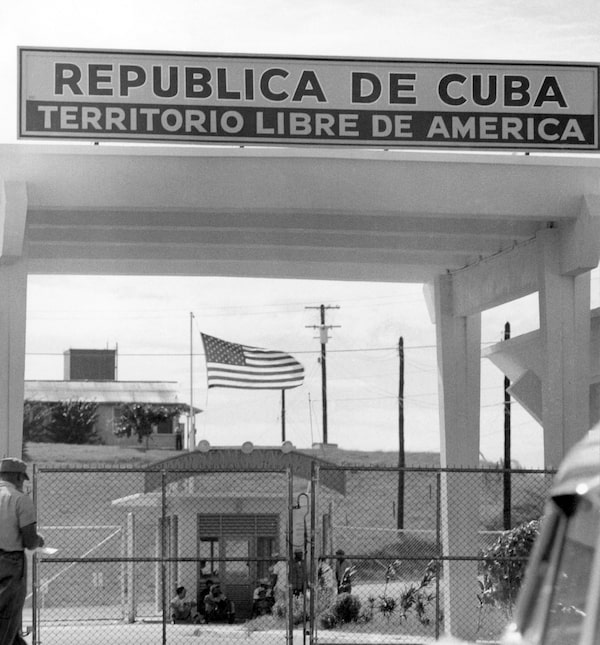Good morning,
Opposition parties are calling for the immediate release of uncensored records on the firing of scientists Xiangguo Qiu and her husband, Keding Cheng, from Canada’s top infectious-disease laboratory – both of whom worked with China.
The Conservatives, New Democrats and Bloc Québécois Thursday urged that the documents be made available as soon as possible, echoing a special committee of MPs that evaluated the records and recommended the release of information currently redacted from public view. The committee found that most of the information redacted from related Public Health Agency of Canada documents appears to have been withheld to shield the organization from embarrassment rather than to protect national security.
It is recommending that the majority of these records be made public at the “next sitting of the House of Commons,” according to a Feb. 19 letter, obtained by The Globe and Mail, that was sent to House leaders of the government and the three main opposition parties. The House is not sitting this week but returns next week. It’s up to the government to release the documents.
Read more:
Xiangguo Qiu and her husband Keding Cheng, infectious disease scientists from Canada’s top-secret laboratory in Winnipeg who collaborated with researchers in China. Governor General’s Innovation AwardsHandout cleared
This is the daily Morning Update newsletter. If you’re reading this on the web, or it was forwarded to you from someone else, you can sign up for Morning Update and more than 20 other Globe newsletters on our newsletter sign-up page.
Suspended officials allege broad cover-up of ArriveCan cost overruns
The federal government’s chief technology officer and top officials at the Canada Border Services Agency are part of a widespread coverup of cost overruns for the ArriveCan app, two former senior leaders at the agency told a Commons committee during three hours of heated testimony Thursday.
The meeting ended with MPs voting unanimously to ask the public service integrity commissioner to investigate all allegations of wrongdoing related to the development of the pandemic-era app for cross-border travellers.
Cameron MacDonald, assistant deputy minister, Health Canada, COVID and Pandemic Response Secretariat, and Antonio Utano, director-general Information Technology Branch, Canada Revenue Agency, appear before a Commons committee on Feb. 22, 2024, on Parliament Hill in Ottawa.Dave Chan�/The Globe and Mail
Deadly 2021 attack on Muslim family in London, Ont., was terrorism, judge says
In a landmark ruling, an Ontario judge has ruled that Nathaniel Veltman’s 2021 attack on a Muslim family in London, Ont., was an act of terrorism, and has sentenced the 23-year-old to life in prison for a crime the court found represented an assault on Canada’s core values.
Ontario Superior Court Justice Renee Pomerance’s ruling, as she sentenced Mr. Veltman on Thursday for four counts of first-degree murder and one count of attempted murder, marked the first time a white nationalist has been labelled a terrorist under Canada’s anti-terrorism law. He will serve five life sentences concurrently, with no chance of parole for 25 years.
Experts hailed the 155-paragraph ruling as a road map that will simplify future prosecution of violent extremists at a time when police and intelligence services have singled out white nationalism as a growing threat.
Afzaal family members Ali Islam, Tabinda Bukhari and Hina Islam (left to right) speak to the media after the sentencing of Nathaniel Veltman in London, Ont., Feb. 22, 2024.Nicole Osborne/The Canadian Press
The B.C. government rolled out its election-year budget with record spending on health and education and financial relief for families and businesses. The voter-friendly largesse will be financed by what is expected to be the highest deficit the province has ever recorded, and soaring taxpayer debt.
Expanding on the string of measures announced in recent months designed to tackle the housing crisis, British Columbia will introduce a flipping tax on home sales, the first province to do so since the 1970s. The 20-per-cent penalty will layer on top of the new federal flipping tax but with a wider reach, capturing home sales within two years of purchase. The federal tax applies to homes sold within one year.
With a provincial election due no later than Oct. 19, the budget includes a number of measures designed to ease cost-of-living pressures on low- and middle-income families, as well as small businesses.
Read more:

Finance Minister Katrine Conroy answers questions from reporters after a photo opportunity at the Fernwood Community Centre in Victoria, B.C., on Feb. 21, 2024.CHAD HIPOLITO/The Canadian Press
Got a news tip that you’d like us to look into? E-mail us at tips@globeandmail.com Need to share documents securely? Reach out via SecureDrop.
Also on our radar
On the war’s anniversary, Ukrainians in Ireland settle into new lives but long for home: The Globe and Mail has been following a group of families who were among the first to leave their homeland when Russia launched its full-scale invasion on Feb. 24, 2022. A handful have returned to Ukraine but most remain outside the country.
Israeli negotiators to take part in new Gaza ceasefire talks, source and media say: Israel will take part in negotiations this weekend in Paris with the U.S., Qatar and Egypt on a potential deal for a ceasefire and release of hostages in Gaza, according to a source briefed on the matter and Israeli media.
Ontario tables bill to overrule provincial energy regulator on natural gas decision, says it would raise cost of new homes: The Ontario government introduced legislation Thursday that would strike down a December decision by the province’s independent energy regulator on natural gas connections that it said would increase home building costs. The province also announced it would replace the Ontario Energy Board’s chair.
AtkinsRéalis, Atomic Energy of Canada to partner on development of new Monark nuclear power reactor: AtkinsRéalis and the federal government have reached a deal both say will accelerate development of a large new nuclear power reactor called the Monark, part of a flurry of new reactor models announced around the world as governments shop for low-emission methods of generating electricity.
Morning markets
World markets firm: Global shares firmed on Friday, capping a record-breaking week after U.S. chipmaker Nvidia’s blockbuster earnings energized tech stocks, powering key benchmarks across the world to new highs. Around 5:30 a.m. ET, Britain’s FTSE 100 was up 0.04 per cent. Germany’s DAX slid 0.02 per cent while France’s CAC 40 added 0.26 per cent. Hong Kong’s Hang Seng lost 0.10 per cent. New York futures were little changed. The Canadian dollar was down modestly at 74.12 US cents.
What everyone’s talking about
A modest proposal to start concerts earlier: Consider the olds
“Listen, Madonna is the queen and I bow down to her (and especially to her dancers after the wild show they put on), but Rogers Arena was packed with olds like me. By the time she reached the ‘90s (10:45 p.m.), it was already past my bedtime. It wasn’t until 11:52 p.m. that she got to the song (Ray of Light) that could get me out of any chair even at that hour, and yes, it was worth the wait. But: my knees.” – Marsha Lederman
Canadian churches are still being set ablaze. Does anyone care?
“It’s no mystery why certain political leaders or social activists might be reluctant to condemn the church attacks. We are in an era where perceived power hierarchies govern dogma, and where people and institutions are slotted into immovable categories of “oppressor” and “oppressed.” And who wants to be seen defending the big, powerful church over those who have been historically marginalized? (An inconvenient fact here is that some of the destroyed churches were located in First Nations, and had Indigenous congregants.)” – Robyn Urback
Today’s editorial cartoon

Illustration by David Parkins
Living better
How much should we listen to our wearable health-tracking devices?
The idea of having your watch or ring inform you on how well you slept, tell you to stand up or go for a walk, or even suggest you visit your family doctor sounds both convenient and dystopian. Now, users and experts are asking if having all this information at our fingertips helps us make better choices that lead to healthier lives, but also exactly how much we should allow wearables to guide decisions about our health.
Moment in time: Feb. 23, 1923
Cuba leases Guantanamo Bay to the United States ‘in perpetuity’

The entrance of the American naval base in Guantanamo Bay in Cuba.JENO PAPP/Getty Images
The U.S. armed forces fought for Guantanamo Bay in 1898 and have been there ever since. The first U.S. battle for the sheltered bay at the southeast end of Cuba was to drive off Spanish soldiers. The U.S. was allied with Cuba in its war of independence against its colonial master. Spain gave up control of Cuba in 1898, but American forces never left Guantanamo Bay. On this day in 1903, Cuba granted the U.S. a forever lease worth US$2,000 a year in gold coins for the 117-square-kilometre site to be used as a fuelling station and naval base. The rent has slightly increased over the years, but the naval base remains a foothold valued for its strategic and training purposes. The territory has served as a front line in the Cold War surrounded by land mines, a refugee camp for Haitians and Cubans, and most famously, as a prison for suspected Islamic terrorists after the Sept. 11 attacks. The U.S. presence on the island nation has long been opposed by the Communist country’s rulers. In 2016, Raul Castro marked U.S. president Barack Obama’s visit to Cuba by demanding Guantanamo Bay be returned, declaring it “illegally occupied.” Eric Atkins.
Enjoy today's horoscopes. Solve today's puzzles. Read today's Letters to the Editor.
If you’d like to receive this newsletter by e-mail every weekday morning, go here to sign up. If you have any feedback, send us a note.